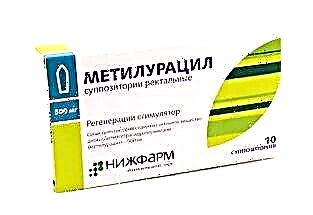
The functioning of the immune system is especially important in childhood, so parents should take care of strengthening it. To do this, it is necessary to provide the baby with breast milk in the first months of life, and after the introduction of complementary foods, make sure that the baby's nutrition is balanced. Also, for strong immunity, it is important to observe the daily regimen, maintain hygiene, and walk in the fresh air.
How do the vitamins that the baby's body receives from food or vitamin supplements affect the child's immunity? Do children need vitamin preparations to strengthen their immunity and which supplements among those presented in pharmacies have the best composition and effect?

What is Immunodeficiency?
Immunodeficiency is the weakening of the child's immunity, the appearance of which you can judge by the following signs:
- The child began to catch cold often. As soon as the illness passed, after a few weeks the child develops a new cold. Viral infections of the respiratory tract appear in a child 4-6 times a year and more often.
- After the illness, the baby has a hard time recovering.
- The lymph nodes are enlarged.
- The baby quickly gets tired and feels drowsy, his concentration of attention is reduced.
- The kid complains of bloating and abdominal pain, and he has unreasonable diarrhea.
- Baby's nails flake and often break, and more hair begins to fall out.
- Allergic reactions may occur.
Do all children need vitamins, see Dr. Komarovsky's program.
Will diet revision save you?
Opponents of vitamins in the form of pharmaceutical preparations insist that the deficiency of these nutrients should be made up only from food. For example, vitamin D should be obtained from sea fish, C from fruits, A from liver and carrots, and E from vegetable oils and yolks.
However, getting enough vitamins requires a fairly large amount of food, which not every child will eat. In addition, an excess in the diet of certain fruits, fish and other foods is fraught with allergies. It is much more effective for vitamin deficiency to give proven vitamin supplements, in which the nutrients are present in the right age dose.

Indications for the use of vitamin complexes
Such drugs are prescribed:
- With inadequate, as well as improperly balanced nutrition of the child.
- With increased and intensified neuropsychic, as well as physical exertion.
- With overwork of schoolchildren.
- During the recovery period after acute illness.
- With seasonal vitamin deficiency.
- Teenagers due to a period of intense growth.
Watch the video of the Teledetki channel about the symptoms of the need to take vitamins - pediatrician M. Nikolsky tells a lot of interesting things.
Preventive use to increase the resistance of the child's body to colds and infections is a big question, since there is no direct relationship between these concepts.
Vitamin preparations are usually recommended to be given to children in the morning, since many complexes have a tonic effect. It is also important to remember that you cannot exceed the recommended dosages.

S.G. Makarova, Doctor of Medical Sciences and a nutritionist, says that all children, without exception, have a vitamin deficiency, proven by numerous studies. When choosing vitamin complexes, you need to be guided by some rules. For more details, see the video of the channel of the Union of Pediatricians of Russia.
But opinions are divided. With rational nutrition, a child does not have vitamin deficiency - many pediatricians in Russia say. How to provide your child with the right diet, see the excerpt from Dr. Komarovsky's program.
Contraindications
Vitamin complexes to increase the defenses of the child's body are not given when:
- Individual intolerance to any ingredient.
- Hypervitaminosis.
How do they affect immunity?
The health of the baby and his resistance to the occurrence of diseases depends on the use of almost all vitamins, but the biggest role in increasing the protective forces is played by:
- Vitamin A - helps to protect the body from viruses and tumors, improves vision, helps to treat allergic reactions, and stimulates skin regeneration.
- E - increases the defenses against viruses, bacteria and cancer cells, affects the development of the entire baby's body.
- C - helps to resist colds, strengthens blood vessels, gums and teeth.
- D - important for bone tissue, heart function, immunity and blood clotting.
That is why in choosing a drug that will positively affect immunity, it is important to look closely at the content of these vitamins.

Kinds
Vitamin preparations, the intake of which affects the state of the child's immune system, are produced in the form of:
- Powder.
- Syrup.
- Chewable lozenges or tablets.
- Coated tablets.
The smallest children (from the age of one) are given vitamin preparations in powder, dissolving it in food, and also in the form of syrup. Older babies are offered chewable tablets with pleasant fruit flavors. Pills that are swallowed with water can be given to schoolchildren and adolescents.
In addition to the release forms, all vitamin preparations differ in composition. There are complexes:
- First generation. These are vitamin preparations used for therapeutic or prophylactic purposes, containing only one component, for example, ascorbic acid. As a rule, they are prescribed for symptoms of a deficiency of one of the substances.
- Second generation. These are complexes of several vitamins, which can also be supplemented with minerals.
- Third generation. In such preparations, the vitamin and mineral complex is combined with plant extracts, for example, from rose hips.

Reviews: which vitamins are considered good?
Based on numerous reviews from parents, good vitamins that strengthen immunity are considered:
- Alphabet.
- Pikovit.
- Vitrum.
- VitaMishki.
Groups
The vitamins that the human body needs are divided into two main groups:
- Water soluble. These include vitamins of group B, C. They are responsible for the functioning of the nervous system, hematopoiesis, metabolic and restorative reactions in tissues, tissue respiration, the strength of the vascular walls, liver function and many other processes in the body.
- Fat-soluble. This group includes vitamins D, A, E and K. They are important for skeletal growth, teeth strengthening, bone formation, hair growth, normal blood clotting, vision and fat absorption.
Age requirements
It is important to note that children should be given only children's vitamins, since their composition is very different from complexes for adults. In addition, medications for children are divided into groups depending on the age category of children to whom they are intended, since the needs for different vitamins in children, say, 3 years old and 9 years old, will differ greatly. Let's consider their features for different age periods.

1 year
The daily requirement of a child of 1 year old for vitamins:
Children of this age most of all need vitamins of group B, D, C, PP and A, since they are responsible for the active growth of a baby over 1 year old. Since one-year-old children cannot swallow tablets, vitamin preparations are given to them in liquid form (syrup) or mixed with food (powder). It is advisable to avoid supplements containing vitamin K, as they can cause bleeding and impair immunity.

Consider the most common vitamin complexes for this age group:
2 years
The daily needs of a two-year-old are the same as for a one-year-old. Babies over 2 years old still need vitamins B, A, C and D. Vitamin K is still advised to be avoided due to the risk of bleeding and immunosuppression. From the age of two, the baby can be given not only syrup, but also chewable tablets.

The vitamin complexes used for the prevention of hypovitaminosis and immunodeficiency for two-year-old children are:
3 years
A 3-year-old child needs the following vitamins per day:
As a rule, it is at the age of three that children begin to go to preschool, contact with other babies. The stress that many children experience while getting used to kindergarten can affect immune function. That is why complexes for three-year-old children or their diet must necessarily contain thiamine, vitamin A, B6, C and PP, as well as riboflavin.

The most optimal complex vitamins for three-year-olds are:
4 years, 5 years and 6 years
The requirements for vitamins in children 4-6 years of age are the same as in three years. At the age of 4, especially active growth of muscles and the skeletal system begins, therefore, among vitamins, it is especially important to get enough vitamins C, groups B, D and A.

Among the complexes optimal for children of this age that can increase immunity are called:
7, 8, 9 and 10 years old
The daily requirement of a child's body for vitamins at the age of 7-10 years:
At this age, the growth of the baby's skeletal and muscular system slows down, while the brain structures begin to form more actively. In order for children of 7-10 years of age to normally endure the intellectual load and resist colds, it is important for them to get enough vitamins E, C, groups B and A.

The following drugs will be the best choices for this age group:
11 years
At this age, the needs of the body of children for vitamins increase and are compared with adults, but at the same time differ depending on the gender of the child.
It is important to ensure that the growing child does not experience a lack of such vitamins, as this will slow down his physical development. Also, hypovitaminosis will affect the functioning of the brain and immune system.

The best choice for children over 11 years old would be the following complexes:
Which is better to choose: comparison of vitamins of different brands
The criteria for choosing a suitable vitamin complex for strengthening immunity are the age of the child and the composition of the drug. Next, you need to decide on the form of release and assess the reliability of the manufacturer. We compared the main characteristics of vitamins for children in the table:
Analogues-immunostimulants
In addition to vitamin complexes, supplements that contain:
- Echinacea. This plant has an immunostimulating effect, but it can be given to children only after consulting a doctor.
- Zinc. When dosed correctly, this mineral is harmless and effective in strengthening the immune system. For children under 6 years of age, a dosage of 10-20 mg is recommended, and for schoolchildren - 20-40 mg per day. Zinc can also be obtained from foods - meat, bread, cheese, cereals, milk.
- Omega-3 fats. Today's children are often deficient in such fatty acids in the diet, which may be associated with early weaning and low fish intake. You can fill the deficit by taking fish oil in the form of liquid preparations, chewable tablets or capsules.
- Probiotics. This is the name of the preparations of bacteria belonging to the normal microbial flora of the intestine - bifidobacteria and lactobacilli. They can be given from 6 months of age by adding the powder form to the food for the baby. Older children can be given probiotics in capsules or tablets. In order for bacteria to actively develop in the intestines, prebiotics should also be added to the crumbs' diet. To do this, give your baby enough vegetables and whole grains.

When are medications needed?
If the baby has serious ailments, indicating a decrease in immunity, you should not buy the vitamin complex yourself and delay the visit to the doctor. By contacting an immunologist, you will be able to recognize immunodeficiency in time, which cannot be cured with vitamin supplements. In such cases, the doctor will prescribe immunostimulant drugs (for example, Immunal or Ribomunil), choosing the right dose, and also determining the duration of therapy.

How you can increase your child's immunity is described in the video of the Union of Pediatricians of Russia.



